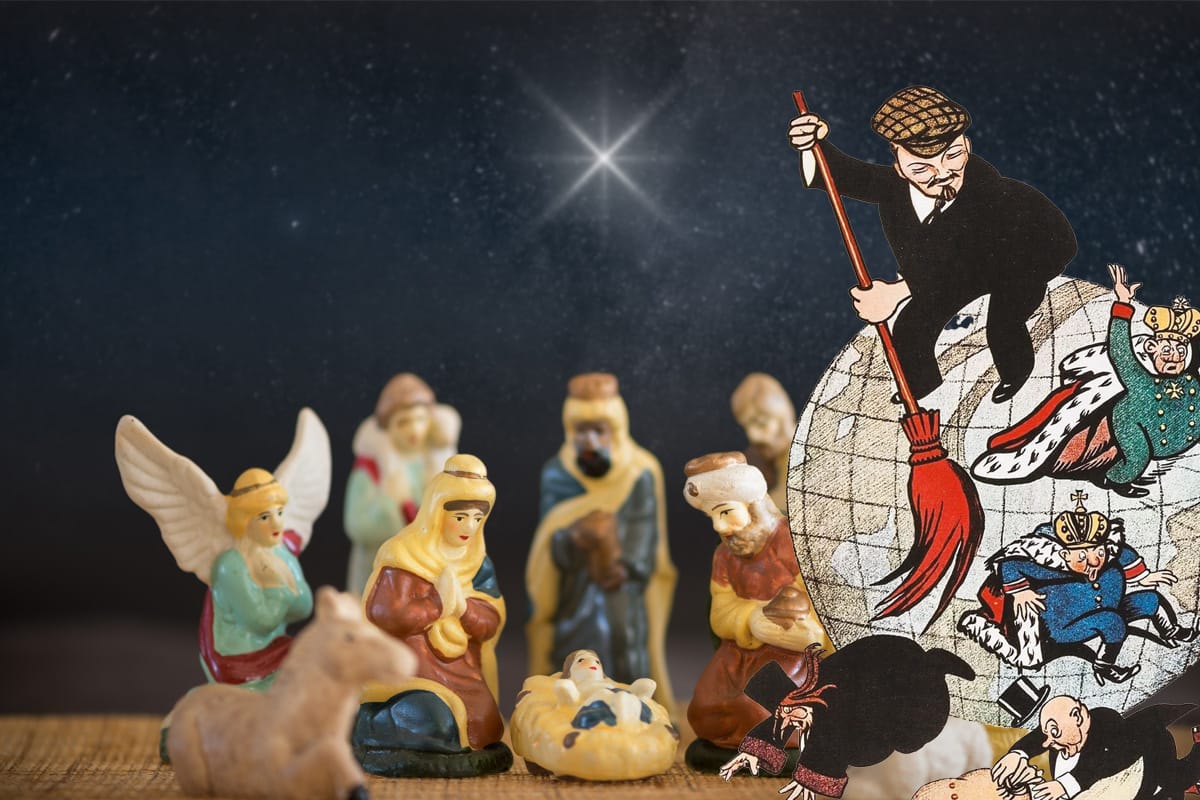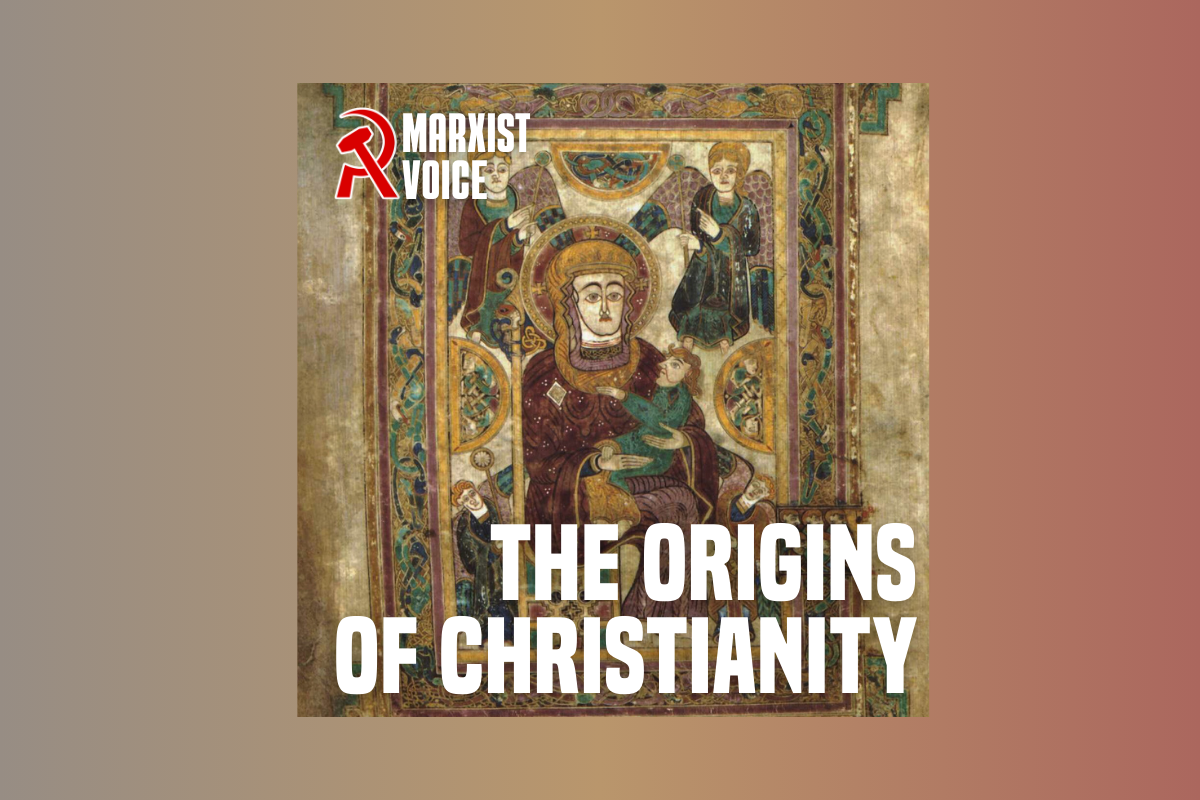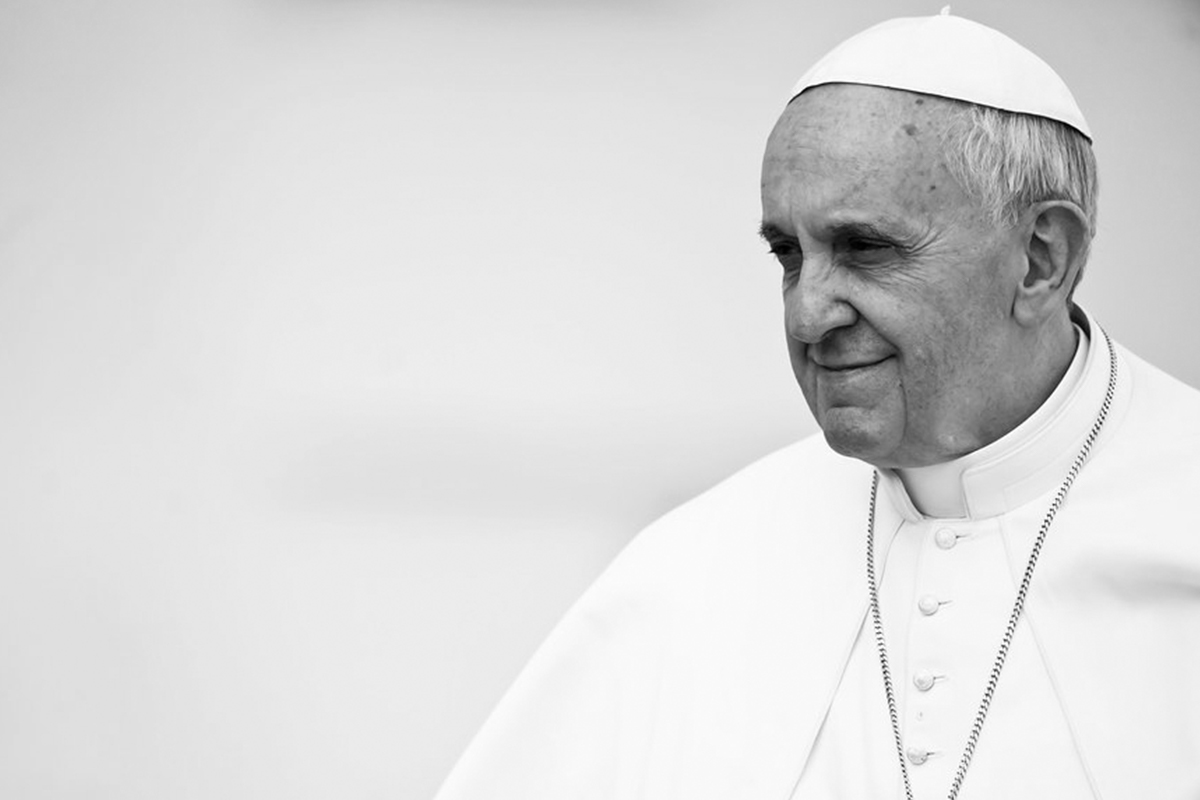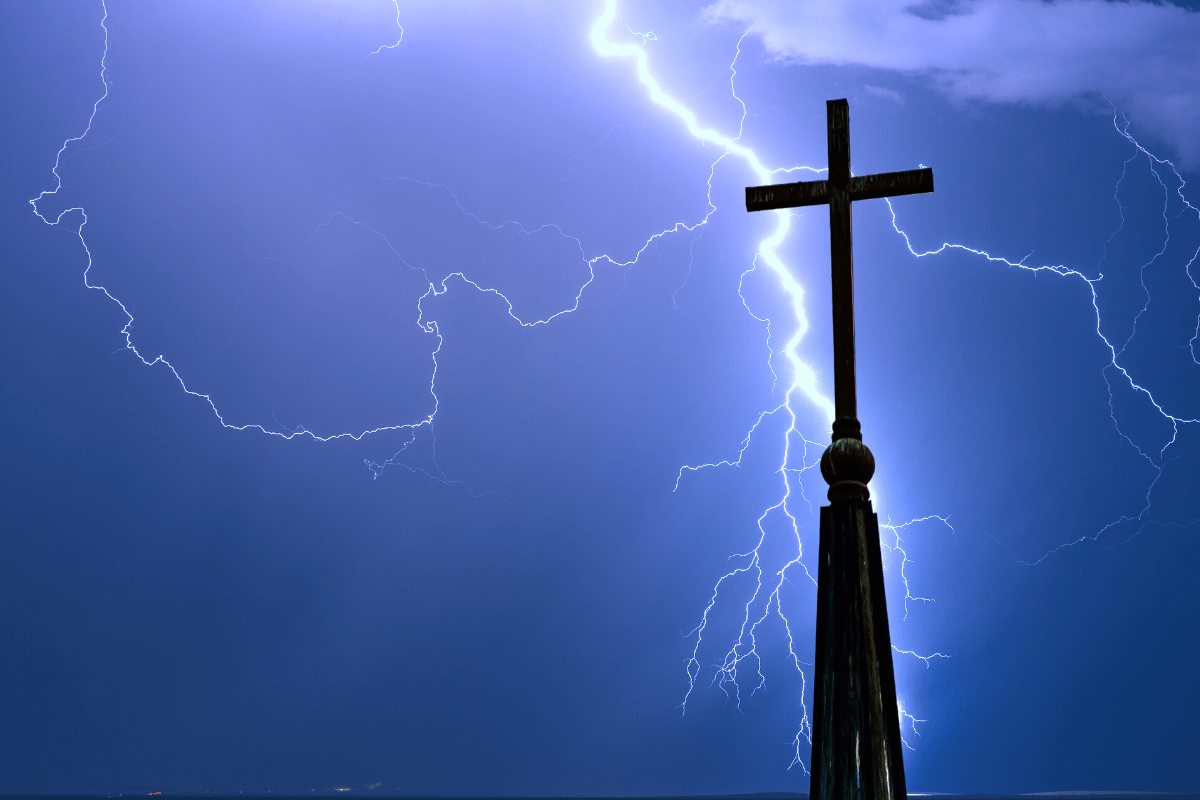The time has come when streets and shopping centres are decorated with fairy lights and glitter. Songs about Santa, jingle bells, and mistletoe are on repeat. We all know what this means. The Christmas holidays are approaching.
For many of us, this is an opportunity to take a short break to see family and friends. But while many associate this period with family gatherings and exchanging presents, the official reason for Christmas is to celebrate the birth of baby Jesus. It is therefore a suitable moment to say a few words about the question of religion.
There are many misunderstandings when it comes to the communist approach to religion. It is common to hear statements like “communists want to ban Christmas”, or “you cannot join a communist organisation if you are religious”.
To understand the real communist approach to religion, one should study Lenin’s writings on the topic.
This was an important question for Lenin and the Bolsheviks to tackle. The Tsarist regime was completely interlinked with the Russian Orthodox Church. It was said that the Tsar was appointed by God himself, and that he therefore had a divine right to rule Russia. An insult to the Tsar was therefore a direct insult to God.
The Russian state based itself heavily on the Church and the priest cast. At the time, Russia was a semi-feudal country, characterised by extreme backwardness and illiteracy. The vast majority of the population were peasants. The Church was the only source of education for most. The peasantry, but also a layer of workers, were therefore heavily influenced by the Orthodox Church.
Given these conditions, Lenin wrote a great deal on what attitude communists should have towards religion. The Bolsheviks aimed to expose how the Tsar and the ruling class used religion to hold down the masses and justify their rule.
But their approach towards religion also required a certain sensitivity. The Bolsheviks strived to win over workers and peasants to the struggle for socialism, including those who had religious beliefs. It was important to be able to skillfully connect with those layers too.
Materialism vs idealism
Lenin was very clear that communists oppose religion, mysticism, and superstition.
Instead we, as communist, base ourselves on the science of Marxism. We are militant materialists.
Marxists do not believe in the supernatural. For a materialist, there is no heaven or hell. There is one objective material world.
Everything in the universe is – and has always been – composed of matter, organised in different ways. There is no phenomenon that cannot be understood. Since everything in the universe is connected, and is made of matter, it can in principle be known.
Religion belongs to the philosophical camp of idealism. This outlook sees the material world as a reflection of the world of ideas.
For idealists, ideas are primary, existing separate from nature. In turn, religion explains phenomena in nature, historical events, and the development of society by referring to God’s grand plan.
It is scientifically proven, however, that the world came into existence much longer than just six days before the human species developed.
Through millions of years of development, humans have become matter conscious of itself. Our ideas are not separate from our bodies, but are products of our brains. To invert Descartes’ famous aphorism: we exist, therefore we can think.
As materialists, we understand ideas to be a reflection of the world we live in, which is independent of our ideas. Marx said: “Life is not determined by consciousness, but consciousness by life.” Our morality and other ideas are shaped by society and its history.
“Opiate of the masses”
Similarly, religion itself has a material base in society. Humanity makes religion in its own image. Ludwig Feuerbach, one of the most important philosophical influences on Marx and Engels, correctly said that if birds had a religion, their god would have wings.
Although science – including Darwin’s theory of evolution – has challenged superstitious and religious explanations of the world, religious ideas and institutions still maintain support within society.
Suffering and hardship have not disappeared for the majority of the masses. Exploitation, poverty, and oppression are built into the capitalist system.
Today, the world seems to be going mad, with the outbreak of war, pandemics, the cost-of-living crisis, and the threat of climate change.
Many turn towards religious belief to cope with these pressures and challenges. Religion provides a sense of comfort, offering simple answers to the big questions.
It also offers a sanctuary from a cold and uncaring society. For many, the church, mosque, or synagogue is the one place they can feel accepted, regardless of what is happening in the rest of their lives.
Humans tend to become more religious during times of crisis. A survey from Pew Research Center showed that 28 percent of Americans reported feeling a stronger personal faith because of the COVID-19 pandemic. Data from Cambridge University also suggest that religious people in the UK coped better during the pandemic.
Marx’s quote that “religion is the opium of the people” is often taken out of context; used to say that communists are hostile to religious people.
But in the full quote, we see that Marx goes to the root cause of why religion persists within society:
“Religious suffering is, at one and the same time, the expression of real suffering and a protest against real suffering. Religion is the sigh of the oppressed creature, the heart of a heartless world, and the soul of soulless conditions. It is the opium of the people.
“The abolition of religion as the illusory happiness of the people is the demand for their real happiness. To call on them to give up their illusions about their condition is to call on them to give up a condition that requires illusions. The criticism of religion is, therefore, in embryo, the criticism of that vale of tears of which religion is the halo.”
(From Marx’s Introduction to a Critique of Hegel’s Philosophy of Right, December 1843-January 1844)
Communists do not believe in forcing everyone to become atheist – which we could never achieve anyway. What we aim to do is to end the suffering and alienation caused by capitalism and class society.
Lenin said that combating religion is the ABC of all materialism. But he explains that Marxism does not stop at these initial letters of the alphabet, but goes further:
“We must know how to combat religion, and in order to do so we must explain the source of faith and religion among the masses in a materialist way.
The combating of religion cannot be confined to abstract ideological preaching, and it must not be reduced to such preaching. It must be linked up with the concrete practice of the class movement, which aims at eliminating the social roots of religion.”
Lenin makes the point that workers are religious not because of ignorance, but due to social conditions. Theoretical arguments cannot persuade workers to fully let go of their beliefs, as long as they are cursed by exploitation, bad living conditions, and general economic insecurity.
Religion can only be combated if we “fight the rule of capital in all its forms, in a united, organised, planned, and conscious way”.
Separation of church and state
Part of the struggle against the capitalist class is to expose their use of religion as a tool to justify their rule.
Lenin said that: “Marxism has always regarded all modern religions and churches, and each and every religious organisation, as instruments of bourgeois reaction that serve to defend exploitation and to befuddle the working class.”
The promise of life after death can be used to justify the ills of capitalism that the majority have to endure. Hell can be used to discipline and terrify the poor, and to promise them that the rich – with their ill-gotten gains, which so often seem to go unpunished in this life – will eventually face eternal punishment thanks to the all-powerful, all-knowing God almighty.
In his pamphlet Socialism and Religion, Lenin explains that the poor are taught by religion to be patient and submissive while living on Earth. This world may be miserable, but at least the exploited and oppressed will have a place in Heaven.
At the same time, to pass through the pearly gates, the capitalists only need to practice charity, which offers them a very cheap way to justify their existence as exploiters.
Lenin said that religion is a private matter. This meant that he and the Bolsheviks stood for the complete separation between church and state.
Religious propaganda should not be forced on people. The Bible or other religious texts should not be taught in school as The Truth. Religious societies must have no connection with governmental authorities. Their moral codes must not be written into the law. No state subsidies or financial support should be given to religious groups.
At the same time, Lenin was clear that this did not mean that religion should be banned. He said that everyone has the right to believe in whatever they wish, and that discrimination amongst citizens on account of their religion is unacceptable.
In power, communists would not forbid religious people to organise their ceremonies and practices. But they would have to rely on their own finances to continue with their activities.
Religion and the party
But while religion is a private matter in relation to the state, that is not the case with the party.
The revolutionary party is an association of class-conscious, advanced fighters, forged to struggle for the emancipation of the working class.
For communists, the ideological struggle is not a private affair, but an important component of the class struggle; a struggle that the party – representing the most far-sighted layers of the working class – must wage, internally and externally, in the most determined and resolute manner.
The programme of the revolutionary party must be based entirely on a scientific and materialist world outlook. In order to successfully struggle against class society, we must study and understand the true historical and objective processes at play.
Our party produces atheist propaganda. But at the same time we are under no illusions that political education alone is enough to combat religion.
For this reason, being an atheist was not a criteria for membership within the Bolsheviks.
Lenin gave the example that a priest would be allowed to become a member if he took part in the political work and consciously performed party duties, without opposing the party programme. The contradiction between the principles of the party programme and the priest’s own religious beliefs would be something that concerned him alone.
If the priest decided to push religious propaganda within the party, however, he would be expelled.
Lenin made the point that we should recruit and organise workers who want to fight capitalism, even though they might be influenced by religion.
These members should be educated in the spirit of the communists’ programme, with the aim to win them over to the materialist philosophy of Marxism.
At the same time, the party should not permit an active struggle against materialism within its ranks.
Connecting with the masses
While the revolutionary party must remain firm as steel when it comes to its principles, it needs the most flexible attitude with respect to tactics.
Lenin thought that one of the most dangerous mistakes made by communists is to think that the revolution will be made by revolutionaries alone. The role of the party is to lead the working class in their revolutionary struggle, but not to conduct the struggle by itself.
He explained that without an alliance with non-communists, in the most diverse spheres of activity, there can be no question of any successful revolution.
There is a time and a place to conduct atheist propaganda. The main aim of the party is to strive for the strongest possible unity amongst the working class, in the struggle against capitalism.
Lenin gives the example of a strike, in which you have both atheist and religious workers participating. It would be extremely harmful in the midst of this action to propagate atheist ideas, which would only cause divisions and weaken the progress of the strike.
He argued that a successful strike, and the progress of the class struggle, would convert religious workers to socialism and to atheism a hundred times better than naked atheist propaganda ever could.
The article Socialism and Religion was written in 1905, on the back of the first Russian Revolution, which was initiated by a priest, Father Gapon.
After one Sunday mass, Gapon led a march to the Tsar’s palace in St Petersburg. There, the demonstration was met with a massacre by the Tsar’s troops.
This brutal event was the starting point of a year of revolution, where layers of the masses who had never been politically conscious threw themselves into the struggle.
In such circumstances, our propaganda should not be about whether God or paradise in Heaven is real, but about how to create a paradise on Earth.
“Unity in this really revolutionary struggle of the oppressed class for the creation of a paradise on Earth,” Lenin stated, “is more important to us than unity of proletarian opinion on paradise in Heaven.”
The attitude of Lenin was to see atheist propaganda as important, but subordinate to the development of the class struggle of the exploited masses against the exploiters.
After 1917
A lot of slanders against communists are connected to what happened after the Russian Revolution of 1917.
It is often asserted that the Bolsheviks suppressed religion. But that is far away from the truth.
The Bolsheviks did pass a decree to completely separate the church from the state. They also freed the education system from religious preachers.
While the Bolsheviks made religion a private matter in relation to the state, all citizens had the right to carry out both religious and anti-religious propaganda.
The Orthodox Church, which under the Tsar had been one of the biggest landowners, was confiscated of its 7.5 million acres. However, Church buildings were returned, and the Church retained the freedom to organise worship, association, meetings, and propaganda.
Lenin did not expect that religion would disappear immediately after taking power. The new workers’ state did not have the productive forces to erase scarcity. The Soviet Republic was isolated, facing foreign invasion and civil war.
As long as the productive forces remained at a low level, the material basis for religion would still exist. What was required was to massively develop industry, technology, science, culture, and public services, in order to abolish economic scarcity and long working hours.
Only under these conditions would the need for religion wither away.
But such conditions did not exist. During the civil war, the priest caste sided with the White Terror. The Patriarch of the Orthodox Church, Tikhon, denounced the Bolsheviks as “monsters of the human race”, saying that anyone within the Church who supported the revolution would be expelled.
In those circumstances, when the revolution was under brutal attack, the Bolsheviks had to take decisive action against counter-revolutionaries. By 1921, they faced a severe famine, which put the revolution in a desperate situation.
To deal with this widespread hunger, the Soviet government ordered the confiscation of Church metals and jewels, in order to buy food from abroad.
The Church leaders, who had sided with the White Army, refused to give up their valuables and organised resistance. By mid-1922, there had been 1,414 violent clashes between the Church and the Red Army.
The repression of the Church during the civil war was not a general policy of Lenin. However, in this specific and dire situation, the Soviet state had to defend the revolution by any means necessary.
By the end of the civil war, when it was clear that the White Terror was going to lose, the Church eventually gave in and accepted the workers’ state.
There are also those who mistake Lenin’s attitude to religion with Stalin’s crude approach.
Stalin, who only had his own and the bureaucracy’s interests at heart, did not follow in the footsteps of Lenin. He initially attempted to liquidate the Church and its influence by governmental decree. He closed churches and forced priests into exile. This reflected the narrow bureaucratic methods of Stalin and the caste of officials he represented.
But, as Lenin had long before predicted, it is impossible to ban religion without dealing with its root causes. Instead of combating religious ideas in a patient, materialist way, Stalin’s ultra-left policy only led to the strengthening of religious beliefs amongst the masses.
When the bureaucracy realised that banning religion was impossible, they decided to lean on the Church instead.
Priests were permitted to vote in the soviets, and expelled priests were allowed back into the country. The bureaucracy revised the school textbook to remove anti-religious passages, and abolished anti-religious tests for the army and the civil service.
Stalin allowed the state and the Church to work much more closely. In the process, he realised that the conservative and privileged apparatus of the Church could be incorporated into the equally conservative apparatus of the state bureaucracy.
Stalin’s attitude to religion has nothing in common with the real Bolshevik method – and is responsible for the misconceptions around communism and religion.
Paradise on Earth
Lenin’s writings and practice during the first years of the revolution show the way forward to abolish scarcity, exploitation, and alienation.
Only on this material basis – by creating a ‘paradise on Earth’ – will support for religious ideas and institutions wither away. But due to the conditions of the Soviet Union, with its economic backwardness and isolation, this potential was not achieved.
Today, the conditions for socialism have never been better.
Already, the proportion of society that describes itself as ‘non-religious’ is higher than ever. The resources and technology exist to completely raise the living standards and cultural level of the masses.
The problem is that these riches and means of production are concentrated in the hands of a small capitalist class, who use whatever tools they can – religion included – to maintain their rule.
The real way to cut away at the roots of religion is to emancipate humanity from poverty, ignorance, and division – and thus to strip away the basis for illusions and mysticism of all kinds.
Only by overthrowing capitalism, bringing about a classless society, and democratically planning the economy – that is to say, by establishing communism – can we consign religion to the dustbin of history.






